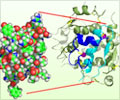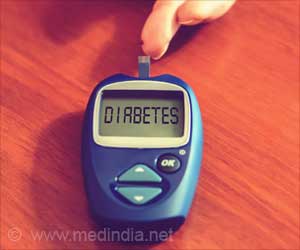Computer-software program more efficaciously controlled blood-sugar levels in critically ill people than the attention offered by nurse-directed care, states the one of its kind large clinical trial.

Although high blood sugar typically is associated with diabetes, it is also a common complication among the critically ill. When it occurs among these patients, who usually have normal levels, it is called the "diabetes of injury."
In this study, both groups of patients had similar average blood-sugar levels, but those in the LOGIC-Insulin group scored better on specific measures. For example, patients in this group were less likely to develop the critically low levels that are associated with hypoglycemia. They also spent more time in the study''s targeted level of 80-110 mg/dL, and exhibited a smaller difference between minimum and maximum blood-sugar readings on a daily basis, indicating less blood-glucose variability.
"Computer-directed algorithms, such as LOGIC-Insulin, that are approved by experts and clinically validated in large studies, will allow safe and effective blood-glucose control," said study director Dieter Mesotten, M.D., Ph.D., assistant professor at KU Leuven (Catholic University Leuven) in Belgium. "This is essential to improve the outcome of critically ill patients in general practice."
Mesotten and his co-investigators randomly assigned 300 critically ill patients to one of two therapy groups. One group received blood-sugar control determined by a team of expert nurses, while the other received treatment based on the LOGIC-Insulin computer program.
The average length of treatment in the single-center study was three days. The study was single-blinded, which means that patients did not know which intervention they were receiving. The primary outcome measure was blood-sugar control up to 14 days after study enrollment.
Patients'' average age was 63, one-fifth had diabetes, and 60 percent were male. All patients had been admitted to the intensive care unit, either after undergoing heart or other surgery, or due to other serious medical complications.
Advertisement
"The LOGIC-1 study is the first large, randomized, controlled clinical trial that has shown an improved blood-glucose control in comparison with expert nurses, " Mesotten said. "LOGIC-Insulin software improves the efficacy and safety of blood-glucose control in a wide variety of critically ill patients, which may improve their outcome."
Advertisement
Source-Newswise









